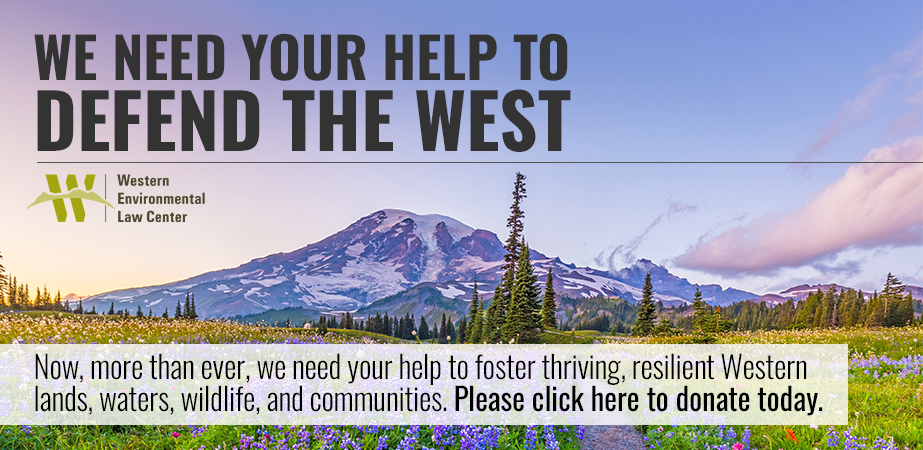Late last week, community, environmental, and food safety advocates challenged two permits that will allow industrial animal feeding operations to continue to discharge pollution into Washington’s waters. A unanimous 2021 Washington Court of Appeals decision required the Department of Ecology to rewrite these permits because they violated state and federal law. Despite a court order that detailed ways to bring these permits into compliance with the law, the two permits challenged today carry forward permit provisions deemed illegal last year, and fail to control the discharge of excess nutrients, bacteria, and other pollutants from these factory farms. Ecology’s failure to require these facilities to implement the available and affordable practices and technologies to control these discharges as required by law risks Washington residents’ health and threatens the environment. The groups filed their appeal of the permits before the state Pollution Control Hearings Board.
Lawful and protective permits are necessary to safeguard drinking water from nitrate pollution, to protect shellfish beds from pathogenic bacteria, and to ensure public health in the context of a changing climate. In its 2021 ruling, the Washington Court of Appeals made clear that Ecology must issue concentrated animal feeding operation (CAFO) permits that prevent further contamination of Washington’s waters and address the realities of the climate crisis. The agency has failed to do so with its new permits.
“Yet again, Ecology fails to grapple with the climate crisis,” said Jennifer Calkins, Diehl fellow with the Western Environmental Law Center. “For example, in 2021, massive flooding on the Skagit and Whatcom Rivers blew out CAFOs, drowning dairy cows and destroying infrastructure. Yet, despite the court’s order to consider climate change, Ecology did not account for the state’s new climate reality when it issued these permits.”
“The law is clear: Ecology’s permits must protect Washington’s waters, wildlife, and communities,” said Andrew Hawley, attorney with the Western Environmental Law Center. “Despite winning our previous case, Ecology has forced us to return to the courtroom to defend our communities from an agency that continues to shirk its legal duty to protect public health and the environment.”
“These ‘new’ permits represent an injustice for clean water and the rule of law. Just over a year ago the Washington Court of Appeals upheld our simple ask—that permits have enforceable limits set at levels appropriate to protect public health,” said Amy van Saun, senior attorney, Center for Food Safety. “With this clear, well-reasoned decision in hand, we expected the state to follow the court’s achievable roadmap to establishing a permit that would protect Washington state communities. Instead, Ecology decided to issue a permit that violates the law and leaves those communities at risk.”
“The people of the Lower Yakima Valley have been suffering for decades, with sixty percent of the water wells within a mile of a main cluster of Yakima County CAFO dairies are unsafe for drinking,” said Margie Van Cleve, of the Sierra Club. “It is long past time for Ecology to stand up to the state’s factory farming industry and take responsibility for protecting the people from this rampant pollution.”
“From industrial facilities and cities, to construction sites, sewage treatment plants, and military bases, state and federal laws govern how water pollution is mitigated, monitored, and managed; CAFOs are no different,” said Sean Dixon, executive director of Puget Soundkeeper. “Across the board, these permits fail to meet baseline legal requirements and, without improvements, they’ll further exacerbate the public health and environmental crisis burdening watersheds and families across the state.”
“Federal law mandates that a CAFO demonstrate how the facility will meet legal requirements designed to protect water quality before it can obtain a permit,” said Kelly Hunter Foster, Waterkeeper Alliance senior attorney. “Contrary to the Clean Water Act, Ecology’s permit allows CAFOs to obtain permits without demonstrating that the facilities can, and will, meet all mandatory legal requirements.”
“Industrial dairies use and pollute massive amounts of water. They contribute to the decline of the natural environment and to the climate crisis. Yet, Ecology fails to comply with the State Environmental Policy Act’s requirement to disclose the true impact of these facilities on communities and the environment,” said Jean Mendoza, executive director of Friends of Toppenish Creek. “The state must make this information public and provide a true accounting of the impacts of these facilities, so we can protect our communities from these bad neighbors.”
The groups are represented by the attorneys at the Western Environmental Law Center and Center for Food Safety.
Contacts:
Andrew Hawley, Western Environmental Law Center, 206-487-7250, gro.w1751748878alnre1751748878tsew@1751748878yelwa1751748878h1751748878
Sean Dixon, Puget Soundkeeper Alliance, 206-297-7002 ext. 101, gro.r1751748878epeek1751748878dnuos1751748878tegup1751748878@naes1751748878
Jean Mendoza, Friends of Toppenish Creek, 509-874-2798, moc.d1751748878uolci1751748878@azod1751748878nemrn1751748878aej1751748878
Amy van Saun, Center for Food Safety, 585-747-0151, gro.y1751748878tefas1751748878doofr1751748878ofret1751748878nec@n1751748878uasna1751748878va1751748878
Lori Harrison, Waterkeeper Alliance, 703-216-8565, gro.r1751748878epeek1751748878retaw1751748878@nosi1751748878rrahl1751748878
Margie Van Cleve, Sierra Club, 206-378-0114, moc.l1751748878iamg@1751748878cseve1751748878lcnav1751748878m1751748878

